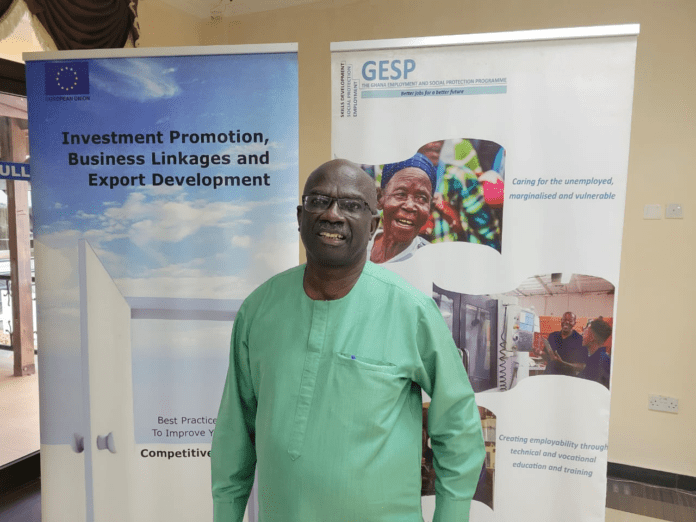
As part of efforts to ensure a smooth Ghana Employment and Social Protection (GESP) programme, the European Union has partnered with the Ghana Employment and Social Protection (GESP) to implement the ‘Investment Promotion and Business Linkages Project’ with six Small and Medium Enterprises (SMEs) benefitting.
The Investment Promotion and Business Linkages Project (the Project) is a component of the five-year Ghana Employment and Social Protection (GESP) programme funded by the European Union in Ghana, and is expected to end in December 2022.
The project has contributed to inclusive growth in Ghana by helping to create formal job opportunities across the agri-business value chain.
A total of six Micro, Small, Medium Enterprises (MSMEs) that are new suppliers of raw materials and other implements are already involved, and have benefitted from tailored technical assistance to improve their performance in the strategic areas of supply and procurement.
Meanwhile, a value chain development and business linkages workshop has been organised for the AGI and associate consultants from the Greater Accra, Ashanti and Volta Regions.
Speaking to B&FT on the sidelines of the 23rd Regional Annual General Meeting (AGM) of the Ashanti, Bono, Bono East and Ahafo Regional branch of AGI, Mr. Francis Osei Kusi – Business Linkages Expert with the EU-funded Investment Promotion and Business Linkages Project, explained the rationale for the project
“We are trying to package or prepare Ghanaian businesses to be able to attract investors into their business. And to do that you must be able to conform and do certain things which will be acceptable and in line with what investors are looking for. So, basically, we are looking at the demand side, making sure the SMEs are ready for investors,” Mr. Kusi said.
Touching on the core of the Investment Promotion and Business Linkages Project, Mr. Kusi noted that it seeks to give capacity and skills training to meet demand, especially with agro-processing companies.
“Business linkages look at the lead agro-processing companies and suppliers of raw materials. It has always been a challenge for processing firms to get the raw materials they need. We work with the companies to find out what they are looking for in terms of raw materials concerning the quantity, and then timely delivery.
“And once we find out from them what they need, we then go to their suppliers and try to help them understand what is available and negotiate. If they can’t meet the criteria, we give them capacity building to be able to understand and relate to the company’s procurement requirements,” he added.









